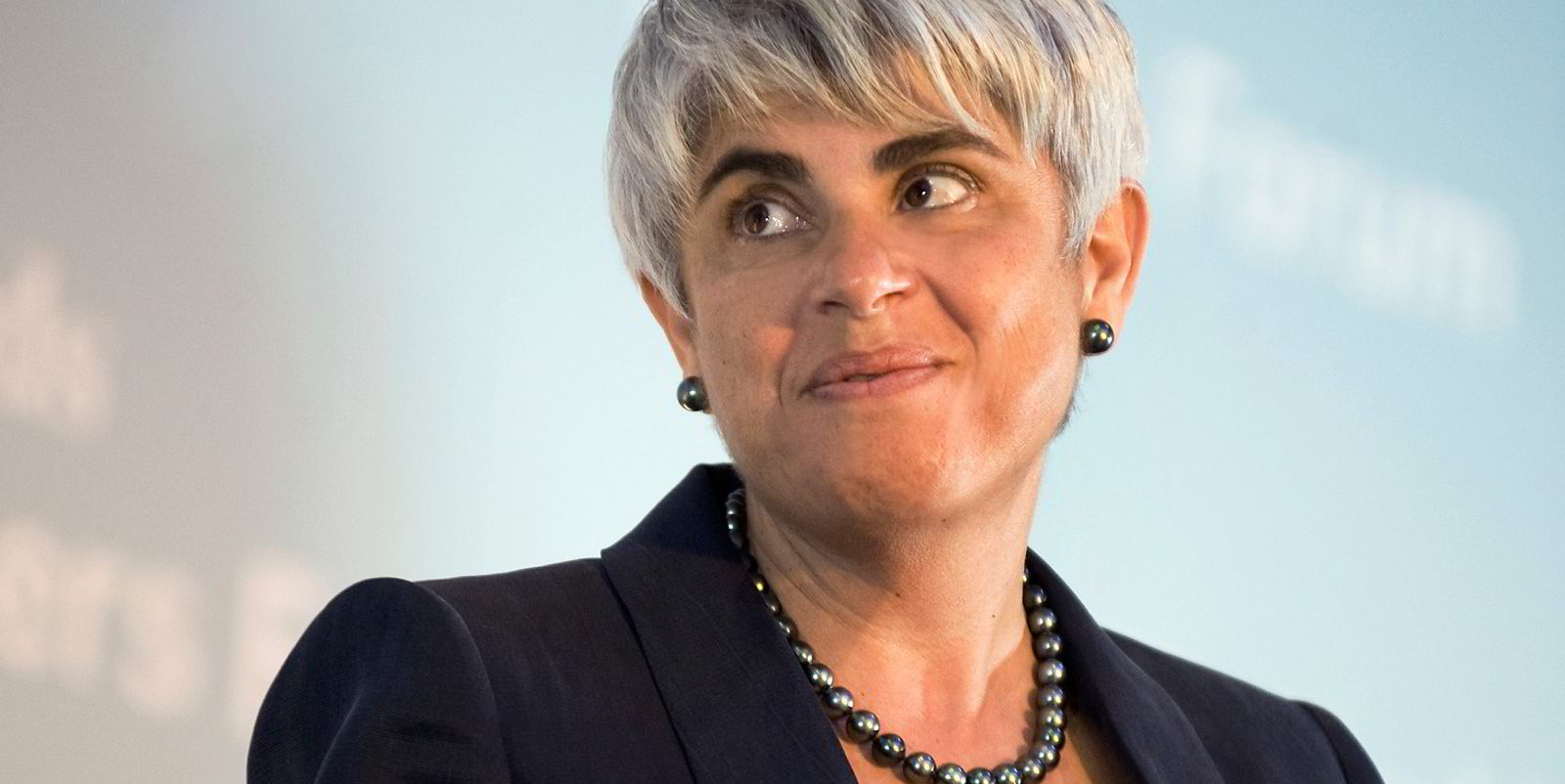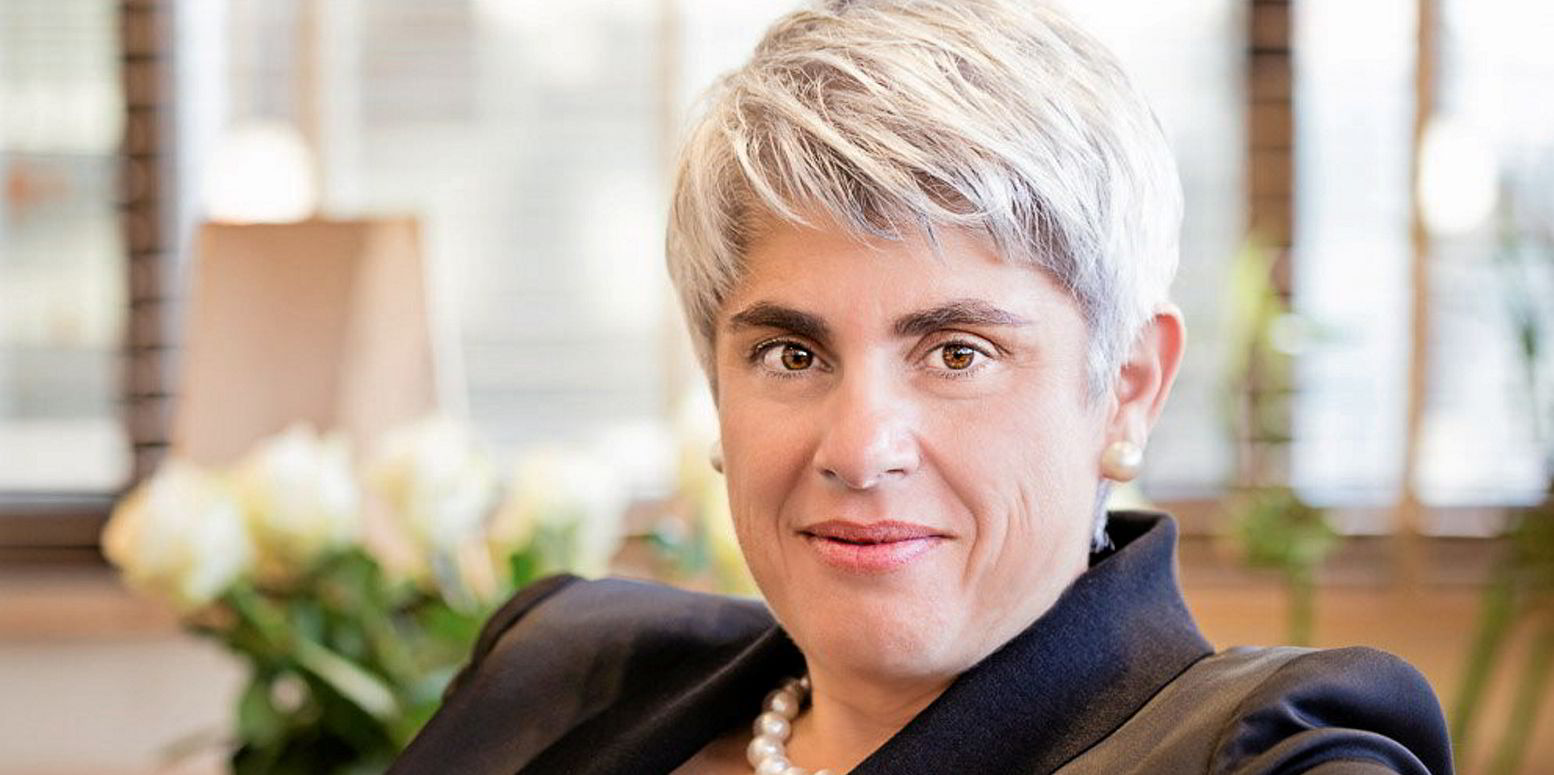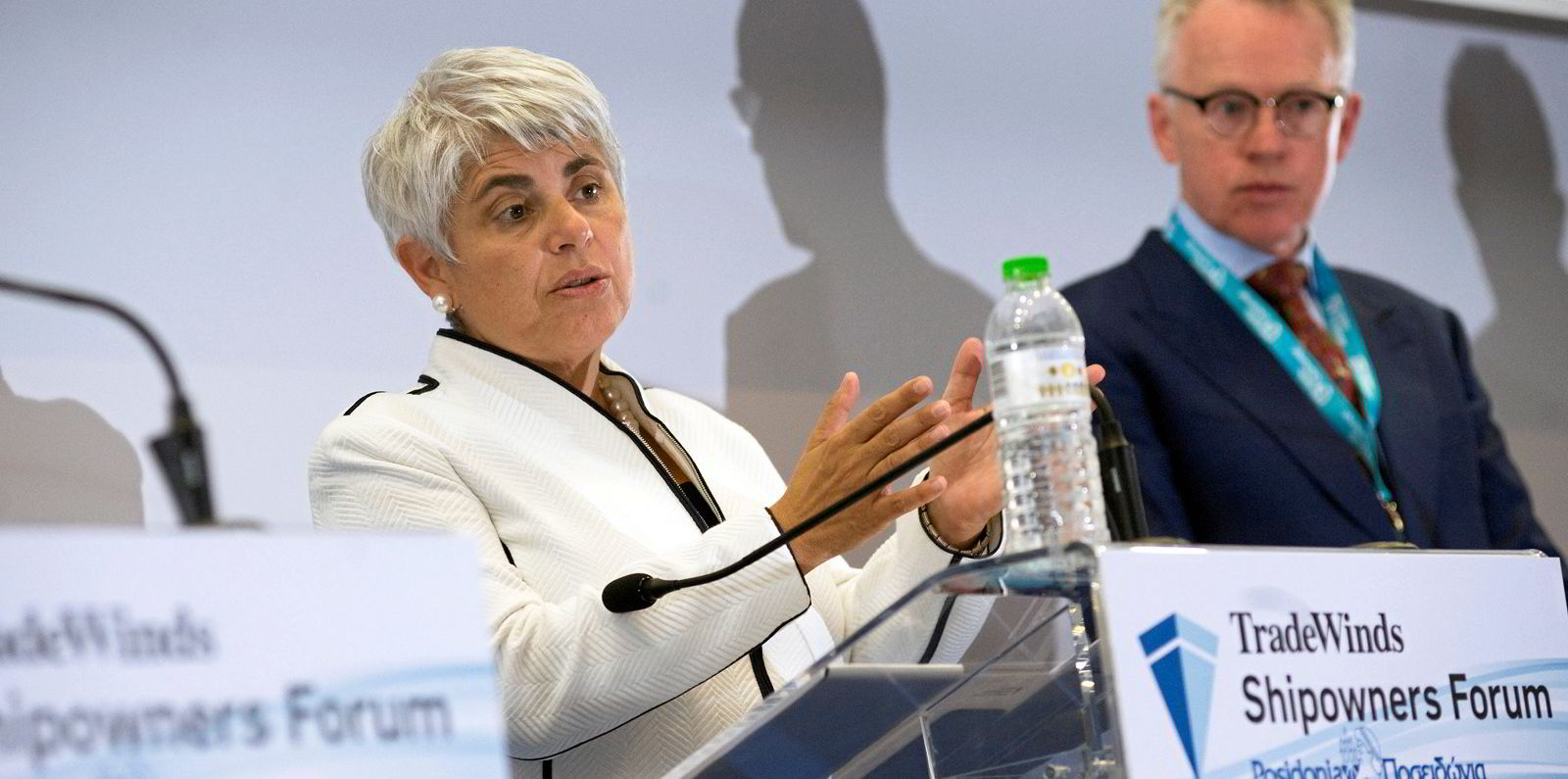Angeliki Frangou made big news in late August when Navios Maritime Partners acquired another of her public companies, Navios Maritime Acquisition, in an all-stock deal.
It was not just that Frangou had created the largest US-listed company by vessel count. Nor that she had bailed out Navios Acquisition, paying $397.5m in mortgage notes approaching their maturity. Rather, it was also her rationale for the deal.
By taking in Navios Acquisition’s fleet of tankers, Navios Partners would add to its existing fleet of bulkers and containerships — giving it a presence in all three major operating sectors.
The boxships had come earlier in the year, when Navios Partners similarly acquired Navios Maritime Containers.
Frangou made the case in an interview with TradeWinds that a diversified public company was the way forward, contrary to the traditional focus on "pure play" vehicles dedicated to only one vessel type or sector.
"We're going from specialised companies to a company that's transformative not only because of its scale, but its presence in different operating sectors," Frangou said.
"We've created more of an all-around company. The focus on pure plays in capital markets resulted in overspecialisation.”
But having thrown down the gauntlet, is Frangou right? Are the pure-play public shipowners that sprouted up from 2004 onward in US markets still viable, or have they gone the way of skinny jeans in current relevance?
Finance experts consulted by TradeWinds are not nearly as enthusiastic on the diversified concept as Frangou.
Still, some say Navios Partners will have a chance to change their minds through forward share performance.
And it is worth noting that Navios Partners shares have appreciated some 30% since the deal — far better than any of the bulker or boxship pure-play peers. It is a small sample size, but so far so good.
Still, scepticism remains.
"I don’t think there is much demand for shipping conglomerates," said Stifel analyst Ben Nolan in a comment typical of the group.

"Shipping by nature is cyclical and therefore investors are transient. Longer-term diversification is probably the right way to do things for private owners, but investors prefer to do their own diversification."
In other words, pure plays allow investors to make a call on a particular asset class, choosing their own timing and moving money in and out of operating sectors and companies as they see fit.
Veteran investment banker Mark Friedman of Evercore said he can see tanker companies diversify into sectors that make them appear more proactive on environmental, social and governance issues, with Ardmore Shipping’s partnership in a hydrogen venture perhaps one example.
'Blend exposure'
"I don’t believe investors are otherwise looking for diversification," Friedman said.
"I think the general view is that investors have a perspective on a particular shipping sector — container, dry bulk or tanker — and are not looking to blend exposure."
Still, there are others who are willing to give the Navios Partners experiment a chance, and they include two veteran analysts who played a part in shipping's great wave of initial public offerings in New York between 2004 and 2007.
"You can’t just run your company based on what Wall Street wants — maybe it’s time to try something different," HC Wainwright analyst Magnus Fyhr said.
Fyhr was arguably the most influential shipping analyst of the mid-2000s while working for Jefferies alongside hard-charging investment banker John Sinders, who led several of the IPOs during that bull run.
"It’s difficult to find investors who want to get into shipping, but if you’re able to prolong the length of the cycle, maybe it becomes more attractive to a mutual fund that can sit on these names for a couple years rather than months," Fyhr said.
Also keeping an open mind is Clarksons Platou Securities’ Omar Nokta, who got his start in 2004 with boutique investment bank Dahlman Rose.
"I think Navios will be a good test case, but it will take some time to have a proper overall perspective. From my view, I would rather see more diversified companies in the public markets,” Nokta said.
"Pure plays are definitely simpler and easier for investors when selecting the preferred stocks to play an investment theme. But pure plays inherently carry more volatility and thus attract a shorter-term view from the investor community."







